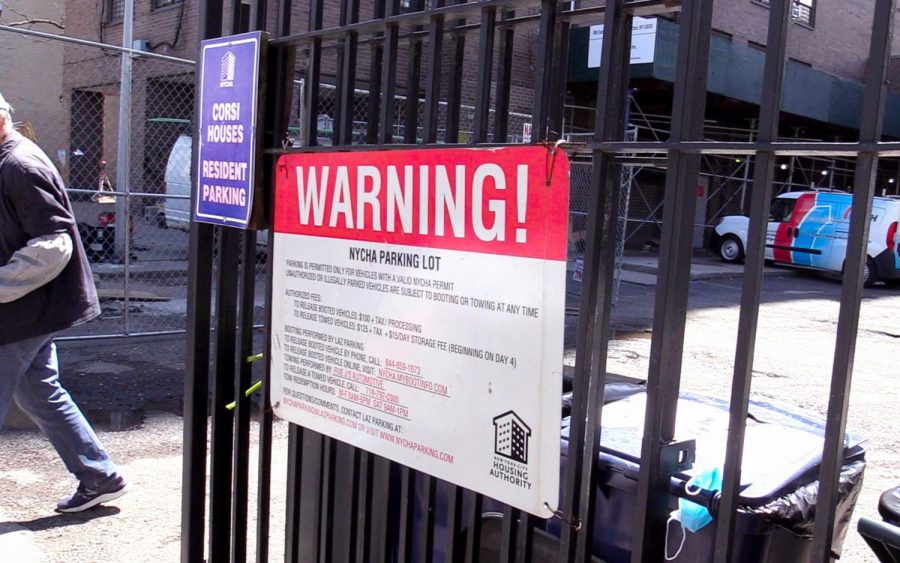Opinion: NYCHA’s privatization plans must be put on hold
Ongoing class-action lawsuits filed by tenants of Queensbridge Houses underscore the hazardous living conditions and lack of transparency that characterize the New York City Housing Authority’s transition to private management through the Rental Assistance Demonstration program. Until residents are given a seat at the table, RAD must be put on hold.
The privatization of housing has become a priority to the NYCHA. This leaves residences dealing with problems such as asbestos and mold. (Photo by Alexandria Johnson)
September 17, 2021
Asbestos, lead, mold, severe leaking, flooding and vermin infestations: These are just a few of the concerns cited by Queensbridge Houses residents in the ongoing pair of class-action lawsuits against the New York City Housing Authority.
With work requests going outright ignored by management, tenants are now suing to demand that the court enforce legally required repairs and provide compensation for damages. Given building management’s blatant failures to respond to resident concerns, residents must be appointed seats on their buildings’ development boards for any improvement to living conditions to occur.
The residents’ troubling reports come despite NYCHA’s extensive reform promises, which continues its controversial transition to privatized housing management for some of its properties. Through a citywide implementation of the Obama-era Rental Assistance Demonstration program, NYCHA maintains building ownership while privatizing management — a move that RAD proponents say will more efficiently deliver repairs, as managers are mandated to verify that living conditions meet city, state and federal standards.
If such heavily funded RAD efforts have had positive effects, though, they are nowhere to be seen at Queensbridge. Following the June 2018 scandal exposing top NYCHA officials in covering up unlivable building conditions across 175,000 apartments, city officials promised that appointed federal monitor Bart Schwartz would be the fix. Despite the city’s hefty investment of over $20.8 million in Schwartz’s firm Guidepost Solutions, Queensbridge Houses residents report zero personal contact with Schwartz.
“We don’t know who this man is,” Sage Foye, a lifelong Queensbridge resident, told the New York Daily News. “He’s making almost $600 an hour. He should have some kind of presence. How is he not knocking on our elders’ doors?”
Guidepost has not provided any details on how the $20.8 million was spent nor commented on what Schwartz’s daily responsibilities are. His spokesman refused to speak on the record with the Daily News.
Unfortunately, these issues are not unique to the Queensbridge complex. Rather, they fit into a greater pattern of questionable RAD conduct. Across Brooklyn and Manhattan, problems with RAD’s transparency are surfacing as questions arise on whether progress is really being made.
In Manhattan, an RAD contractor at the Washington Heights Rehab complex was discovered last fall to have covered up toxic mold in 45 units. Since then, two tenants have filed against the complex’s current management, the PACT Renaissance Collaborative, and NYCHA, alleging the agencies did not properly oversee the building’s asbestos and lead repairs. The asbestos contractor carried a record of 14 independent violations, and the lead paint supervisor’s certifications had expired a decade prior.
NYCHA has also not submitted its own required lead paint clearance reports for any of the 1,700 privatized apartments it oversees in Manhattan or the 2,600 in Brooklyn.
NYCHA’s continued lack of transparent communication with residents and its failure to follow its own repair protocol only provokes further doubts about whether RAD ever has, or will, improve public housing. In light of private management’s obvious disregard for tenant voices, NYCHA must pause any upcoming RAD transfers and put a stop to incompetent management until residents are given the seats necessary to effect change.
Contact Michelle Han at [email protected].

























































































































































